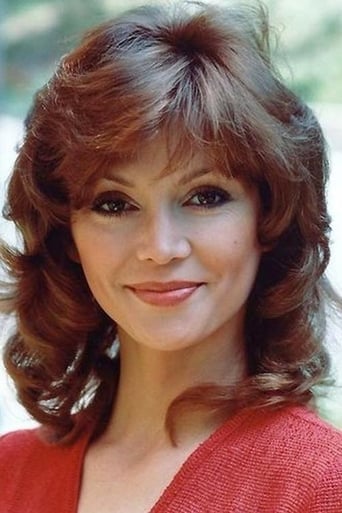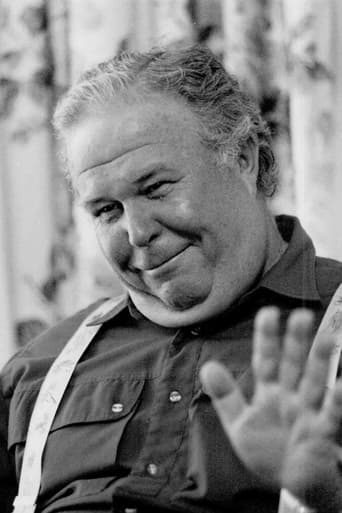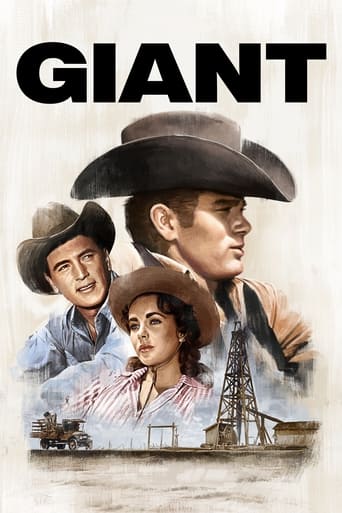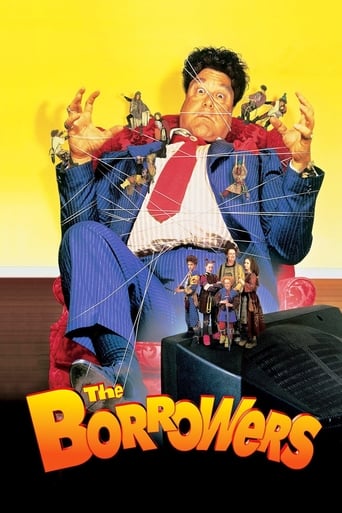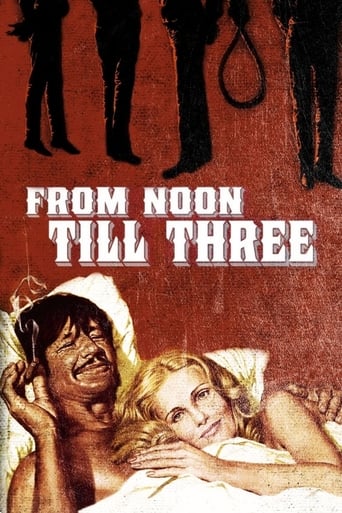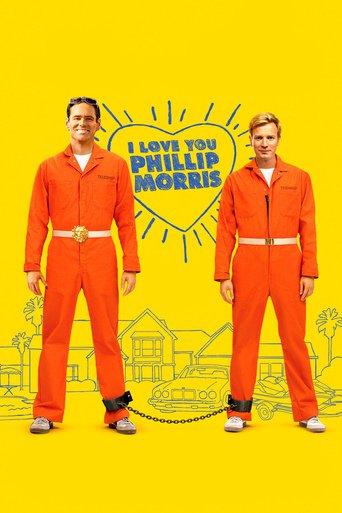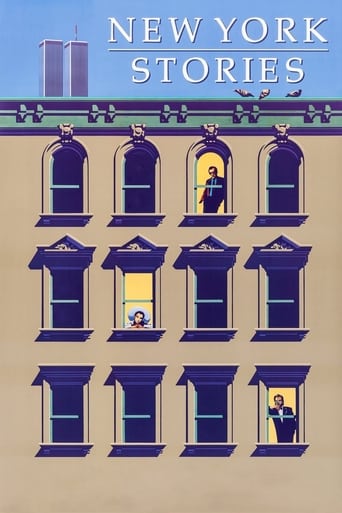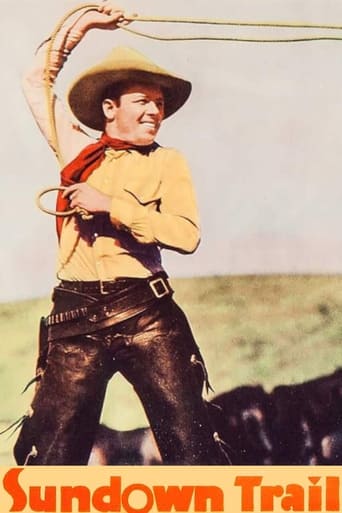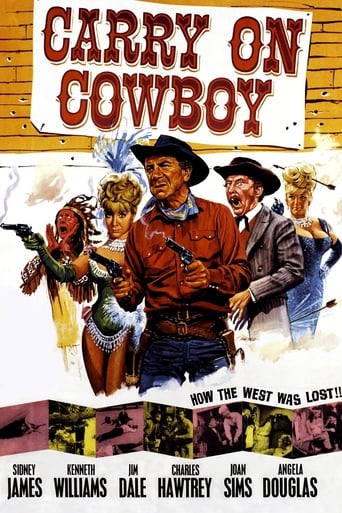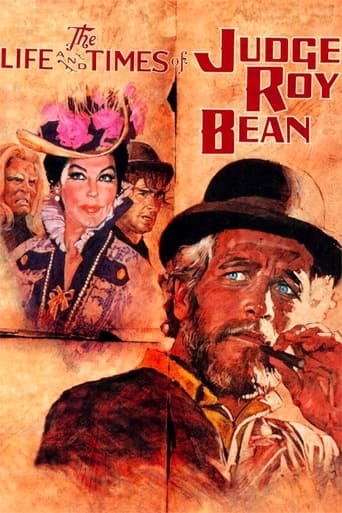
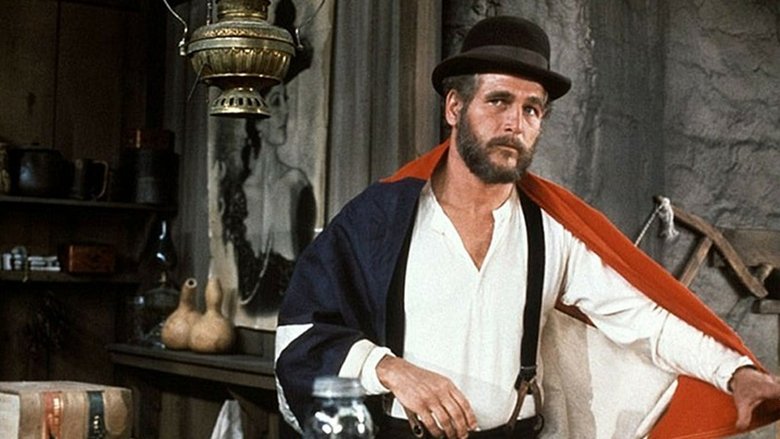
The Life and Times of Judge Roy Bean (1972)
Outlaw and self-appointed lawmaker Judge Roy Bean rules over an empty stretch of the West that gradually grows, under his iron fist, into a thriving town, while dispensing his his own quirky brand of frontier justice upon strangers passing by.
Watch Trailer
Cast
Similar titles
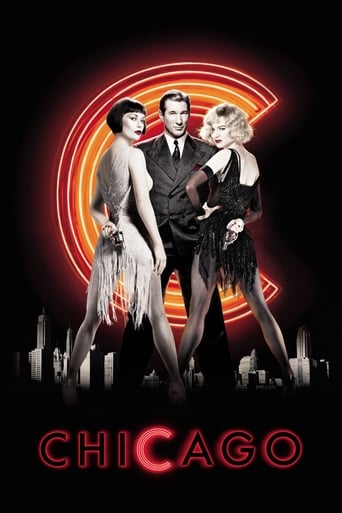
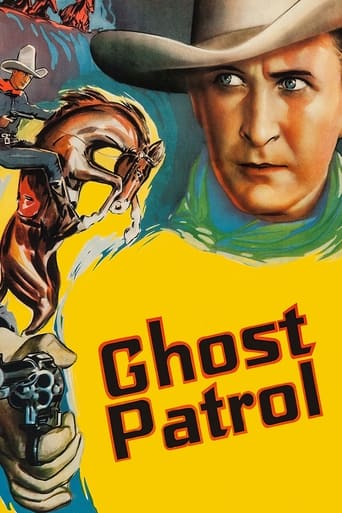
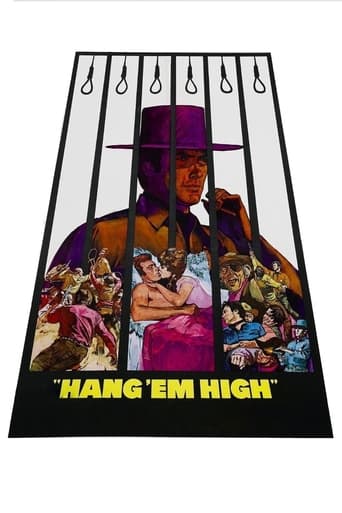
Reviews
People are voting emotionally.
Excellent, Without a doubt!!
A movie that not only functions as a solid scarefest but a razor-sharp satire.
An old-fashioned movie made with new-fashioned finesse.
"The Indians must conform to the white man's ways, peaceably if they will, forcibly if they must. They must adjust themselves to their environment, and conform their mode of living substantially to our civilisation. This civilisation may not be the best possible, but it is the best the Indians can get. They cannot escape it, and must either conform to it or be crushed by it. The tribal relations should be broken up, socialism destroyed, and the family and the autonomy of the individual substituted." - Commissioner Thomas Morgan "There is no document of civilisation that is not at the same time a document of barbarism." - Walter Benjamin "The Life and Times of Judge Roy Bean" tells the tale of Judge Bean, an American outlaw who, in the early 1900s, claimed a chunk of land and made himself self-appointed ruler. With a six-shooter and a law book, Bean then set about taming the Wild West. The film was directed by John Milius, a renowned right-winger, survivalist, gun advocated and self-described rugged individualist. Unsurprisingly, Milius saw Bean as a "necessary evil". His Bean was a man who was "vital" in bringing civilisation to the Old West. Milius' Bean then achieves a kind of tragic grandeur, for his "taming" influences are then swiftly deemed abhorrent by the "new", "modern" civilisation he gives birth to; he's kicked out of his own town come the arrival of the 20th century. This is the paradox of most of Milius' films, which exhibit a certain amount of pride for a certain type of "necessary violence", whilst also decrying the same.What makes "The Life and Times of Judge Roy Beans" interesting, though, is that it was directed by Milius' political opposite, John Huston. Huston's an adventurer very much like Milius, but is also a notorious left-winger. He thus sets about satirising and lampooning everything Milius wrote. This has annoying many critics. Roger Ebert, for example, states that Huston's film "sets out to be an elegy to the passing of the Old West and ends up being an elegy to the passing of bad manners". But this is not true. It is typically the more well-regarded westerns that are wistful, or pine nostalgically for a specific form of violent masculinity. Huston, though, satirises the genre's romanticism and is preoccupied with highlighting how America is grounded on, or was built by, bad manners.And so Huston's film – a kind of remake of Luis Bunuel's "Gran Casino", or rather Wyler's "The Westerner" via "El Topo" - paints America's founders and forefathers as whores, crooks and convicts. His town builders are maniacs and his lawmen criminals. Laws are seen to be an arbitrary thing, naked power, insanity and violence rule the land, nepotism and injustice are rife, an authoritarian, one-man-rule emergency manager is offered as the "solution" for social ills and our heroes are slimy cowards who are less legendary than lowly losers adept at shooting their foes in the back. Huston is not endorsing or glorifying any of these things, though, but mockingly presenting them all as America's true primordial soup. This is how life began.An anti-myth, and resolutely revisionist, the film is also outright goofy. Huston's film, like mainstream Western history, is a ridiculous Tall Tale wildly out of control. It is history reduced to episodic larks, rumbustious nonsense and filled with eccentric, thin, implausible guest characters. It is, in other words, identical to your typical, inane, pop-up-book view of history. Significantly, what replaces Judge Bean's era of sleaze and corruption is yet another era of sleaze and corruption. Huston's film then ends with an audacious segment "in the future" in which a now old Bean is gunned down by bigger fish with bigger guns still: sleazy Eastern businessmen replace a sleazy authoritarian.Milius has the last laugh, though, with a closing coda which Huston dutifully films, unaware of the thematic implications. Here we're introduced to Lily Langtry, a turn of the century celebrity whom Bean idolised. Langtry's symbolic of mankind's longing for unattainable beauty and his preponderance for settling for earthly angels instead. She, in other words, represents the separation between "real law" and "idealised justice", between the gorgeous Langtry and another female character whom Bean eventually settles down with (a half caste prostitute). For Milius, Langtry is a left-wing fantasy, a Utopian idyll, whilst the West's blood, guts, whores and rattlesnakes are the inevitable reality which must be accepted with pragmatism, backbone and resolve. In other words, Milius is trying to sell us just another form of the White Man's Burden: civilization must be forged with the barrel of a gun, a lie which continues to this day (America's new frontiers, Iraq, Afganistan etc). While Huston is right to mock both Milius and the Western genre, the truth of the Wild West was also much more nuanced (John C.H Grabill's photographs, for example, attest to how few gun-belts were actually worn in the Wild West). The West's most important figures weren't the mountain men, trappers, gunmen and cowboys, but simple, resolute souls who spent their days struggling to forge a civilisation by more mundane means. It was pioneer families, religious leaders and missions who built the West. In a way, we have replaced the true heroes of the Old West with the likes of Butch Cassidy, Bean and Billy the Kid. The Old West was the domain of communal endeavours, not unbridled individualism. It was a land conquered by the plough, not only the gun. The stories of the men and women who made their lives in Western valleys and plains may be prosaic, but they are the story of the West itself.7.5/10 – Bean is played by the likable Paul Newman. Newman acted in a number of excellent revisionist westerns ("Hud", "Hombre", Altman's "Buffalo Bill" etc).
Paul Newman plays the outlaw who one day, after looking through a law book, decides that he's a judge. He then appoints a bunch of robbers as his Marshalls, hangs posters of a actress all around his bar aka house of law and hangs people left and right. With a beer loving Bear and a hot gal by his side he has a pretty wild life.This is of course a comedy, or at least partly a comedy. It does take time for some drama and a whole lot of action. As the times gets more civilized, the honorable judge Roy Bean never seem to change too much, which is of ill liking of the more sophisticated. Paul Newman gives a solid performance as the half crazed judge, his supporting cast is good as well and we even get great cameos from Perkins, Gardner and Huston himself. I highly recommended watching this one.Overall rating 8.5/10.
John Milius scripted this farcical western right out of film school. He appears to have been enamored of the "Butch Cassidy" style of western in which modern references and jokes leaven the bloodshed--and in director John Huston, Milius has found that movie partner who relishes the macho aesthetic while underlining everything with self-righteous seriousness (both Johns think alike). Paul Newman, once again playing outlaw, heads up a tiny desert community, appointing himself judge-jury-and-executioner. The western town grows in capacity over the years, and the life there is captured quite vividly, with outré humor and colorful characters who are a lot of fun initially. However, the apparent desire to be profound comes off as masochistic in these joshing circumstances, and as Roy Bean is eventually usurped by the town's growth and progress, one isn't sure how to accept the material. Huston and Milius are like pontificators with a joy buzzer. They've got a good movie here, though it's one that leaves a sour aftertaste behind. **1/2 from ****
This was Paul Newman’s third of four films about legendary figures of the American West – the others being William “Billy The Kid” Bonney in THE LEFT HANDED GUN (1958), Butch Cassidy in BUTCH CASSIDY AND THE SUNDANCE KID (1969) and William “Buffalo Bill” Cody in BUFFALO BILL AND THE INDIANS, OR SITTING BULL’S HISTORY LESSON (1976) – and his first of two in a row with director Huston – the other being the espionage thriller THE MACKINTOSH MAN (1973; which, incidentally, was partly filmed in Malta).The last three Westerns all came at the tail-end of the genre and, apart from being in a decidedly comedic vein, can also be dubbed “Revisionist”. Newman essays the titular figure as a character part, with his handsome features hidden behind a scruffy beard (his hair has all gone white by the end) and little display of his trademark ruggedness and mischievous charm. Ironically, despite the phenomenal box-office success of movies like THE STING (1973) and THE TOWERING INFERNO (1974), the Seventies weren’t particularly distinguished for Newman as an actor and his performance here is arguably his best work of the decade!The film is generally elegiac in mood (especially during its last act when the Old West is all but vanquished in the name of progress) and episodic in nature, with a plethora of stars turning up for just one sequence or scene: Anthony Perkins as a preacher, Tab Hunter as a convicted murderer, Stacy Keach as an albino badman who terrorizes the town, John Huston himself as the owner of a sideshow attraction (an amiable beer-guzzling bear which eventually comes in handy to the Judge), Roddy MacDowall – who has the largest role of all is an ambitious lawyer (he’s subsequently appointed mayor and eventually becomes an oil tycoon), Anthony Zerbe as a mugger, and Michael Sarrazin – whose “participation” extends merely to sharing a photo with Jacqueline Bisset (as the Judge’s daughter)! The latter, then, provides undeniable eye-candy along with Victoria Principal (radiant in her film debut) as Bean’s Mexican lover and Bisset’s own mother – while Ava Gardner’s Lilly Langtry only shows up at the very end after Bean himself, who worshiped the celebrated actress, has died; Ned Beatty is also quietly impressive as the most loyal of Bean’s gang (who actually prefers tending bar to performing his duties of deputy!).The best/funniest bits are: Bean assuming control of the town after a near-lynching, Principal shooting repeatedly at a whore (a potential rival for Bean’s affections) and being thrown to the ground with the force of each blast, Bean’s entire gang shooting in unison at a drunkard who dared take a potshot at Lilly Langtry’s portrait, Keach’s cartoonish demise, and Bean and Gang’s epic Last Stand. As had been the case with BUTCH CASSIDY’s Oscar-winning “Raindrops Keep Fallin’ On My Head”, the film features a recurring song motif in “Marmalade, Molasses And Honey” (music by Maurice Jarre, lyrics by Alan and Marilyn Bergman) – which also ended up nominated, but is nowhere near as memorable as that Burt Bacharach/Hal David classic (though Jarre’s score, in itself, is quite good). For that matter, neither is Huston’s film up to the George Roy Hill masterpiece – though it’s certainly better than the talky Robert Altman-directed Buffalo Bill pic.By the way, William Wyler’s THE WESTERNER (1940) had been another film which centered around Judge Roy Bean: played as a semi-villain by Walter Brennan, that characterization had led to his third Oscar. I own it on VHS but, since this month’s schedule is absolutely crammed with movies I need to watch in tribute to someone or other (including JUDGE ROY BEAN itself to commemorate the 20th anniversary of Huston’s passing!), I couldn’t possibly fit it in...

